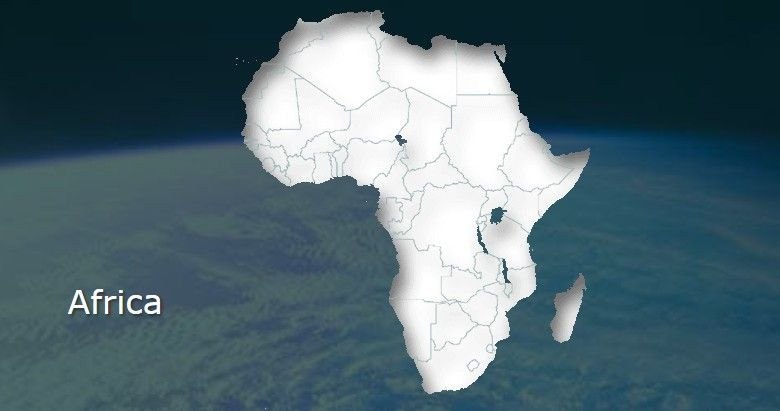
Zimbabwe stands at a critical juncture, a moment where the linear take make dispose economic model reveals its inherent unsustainability.
The nation's resource base, already strained by various environmental and economic pressures, faces further depletion under this traditional system.
Transitioning to a circular economy, where resources are kept in use for as long as possible, extracting the maximum value from them whilst in use, then recovering and regenerating products and materials at the end of each service life, is not merely an option for Zimbabwe.
From environmental degradation to biodiversity loss and mounting waste, we are facing the dire consequences of a reckless economic model that extracts, consumes, and discards.
But there is an urgent alternative one that is not just possible, but essential.
The circular economy is more than an environmental fix; it’s a smarter, more resilient strategy for sustainable development.
It has the power to revolutionize how we produce, consume, and thrive within the planet’s limits. This could be the most critical economic transformation of our era.
Today, our global economy remains overwhelmingly linear: we extract, consume, and discard. As a result, we generate more than two billion tonnes of waste annually, a figure projected to rise to 3.4 billion tonnes by 2050.
- Mavhunga puts DeMbare into Chibuku quarterfinals
- Bulls to charge into Zimbabwe gold stocks
- Ndiraya concerned as goals dry up
- Letters: How solar power is transforming African farms
Keep Reading
Meanwhile, resource extraction has tripled since 1970, driving 90% of biodiversity loss, and 55% of all greenhouse gas emissions.
It is responsible for 40% of particulate matter health related impacts, driving us to exceed safe planetary boundary limits beyond which current and future generations cannot continue to develop and thrive.
The current system is not only unsustainable but also unraveling the very foundation of development.
Circular economies grow by reducing resource use. They focus on reusing, regenerating, and minimising waste in all sectors, like agriculture, energy, and consumer goods.
This ensures a fair transition to a low carbon, sustainable future. Switching to a circular model could bring US$4.5 trillion in economic benefits by 2030, cut emissions, create stable jobs, and open new green markets.
The linear economy's footprint in Zimbabwe is evident in numerous ways.
Land degradation from unsustainable mining practices leaves vast tracts of unusable land. Growing urban centres grapple with overflowing landfills, posing significant health and environmental hazards.
Reliance on imported goods drains valuable foreign currency and leaves the nation vulnerable to global supply chain disruptions.
Furthermore, the informal sector, while a significant employer, often operates with limited waste management practices, exacerbating environmental challenges.
Embracing a circular economy offers a pathway towards a more resilient and sustainable future for Zimbabwe. Imagine a system where waste is viewed not as a burden but as a valuable resource.
Organic waste from households and agriculture can be composted to enrich depleted soils, boosting agricultural productivity and reducing the need for expensive and environmentally damaging chemical fertilizers.
Plastic waste can be collected, recycled, and transformed into new products, creating employment opportunities and reducing plastic pollution that chokes waterways and harms wildlife.
Electronic waste, often containing precious metals, can be responsibly dismantled and its components reused or recycled, recovering valuable resources and mitigating the environmental risks associated with improper disposal.
This transition necessitates a multi-pronged approach. Government policies play a crucial role in creating an enabling environment through regulations that incentivise waste reduction, promote eco-design, and support the development of recycling infrastructure.
Investment in research and development is essential to foster innovative circular economy solutions tailored to Zimbabwe's specific context.
Furthermore, empowering local communities and the informal sector through training, access to technology, and financial support can unlock their potential as key players in collection, sorting, and processing of waste materials.
Education and awareness campaigns are equally vital to foster a culture of circularity among citizens and businesses.
Consumers need to be informed about sustainable consumption choices, the importance of waste separation, and the benefits of supporting businesses that embrace circular practices.
Businesses, on the other hand, need to recognize the economic opportunities presented by circular business models, such as product as a service, remanufacturing, and closed loop supply chains.
Across Africa, a growing number of nations recognize that the linear economic model is unsustainable for their future.
Countries are beginning to explore and implement circular economy principles, albeit at varying speeds and scales.
Initiatives range from national policies promoting waste reduction and recycling in countries like Ghana and Rwanda, to supporting innovative circular businesses.
Kenya, for instance, has seen the rise of enterprises turning plastic waste into construction materials, while others across the continent are focusing on organic waste composting and e-waste recycling.
Regional collaborations and frameworks, such as the African Circular Economy Alliance (ACEA) and the African Circular Economy Facility (ACEF), are also gaining momentum, fostering knowledge sharing and providing financial support for the transition.
These efforts signal a continent awakening to the economic and environmental benefits of keeping resources in use, yet significant challenges remain in scaling these initiatives and embedding circularity across all sectors.
The understanding that this transition is crucial for a resilient and prosperous Africa is, however, becoming increasingly clear.
The benefits of a circular economy for Zimbabwe extend beyond environmental protection.
It can foster economic growth by creating new industries, supporting local manufacturing, and reducing reliance on imports.
It can enhance social well-being by creating green jobs, improving public health through reduced pollution, and promoting resource efficiency that benefits all citizens.
The transition to a circular economy is not a distant aspiration for Zimbabwe; it is an urgent imperative.
The environmental, economic, and social challenges posed by the linear model demand a paradigm shift.
By embracing circular principles, Zimbabwe can unlock a future of resource security, environmental sustainability, and inclusive economic growth, a future that the nation can no longer afford to delay.










